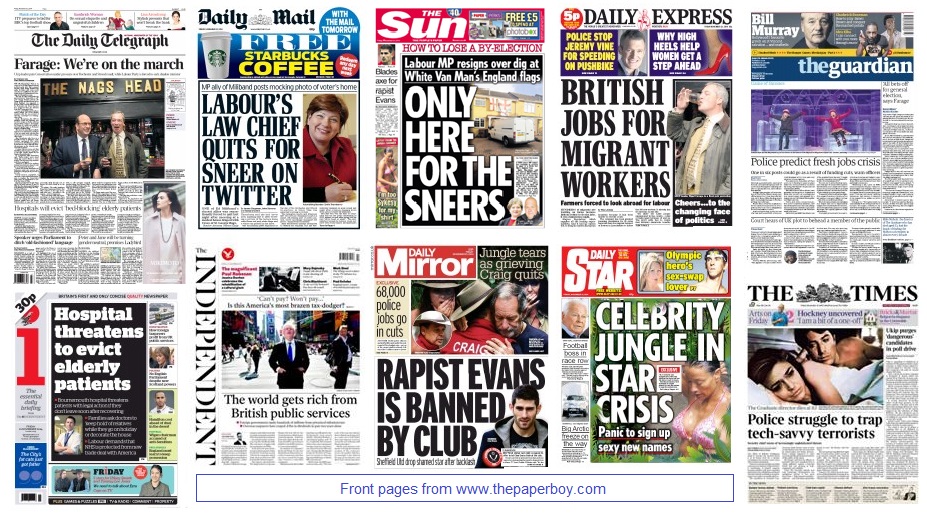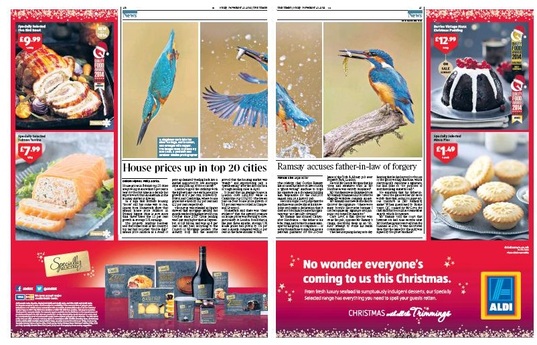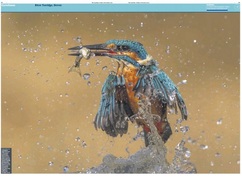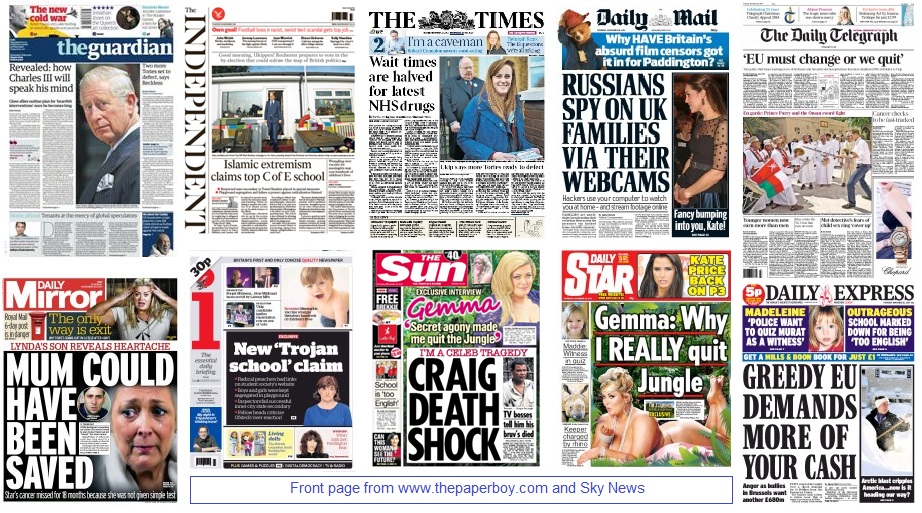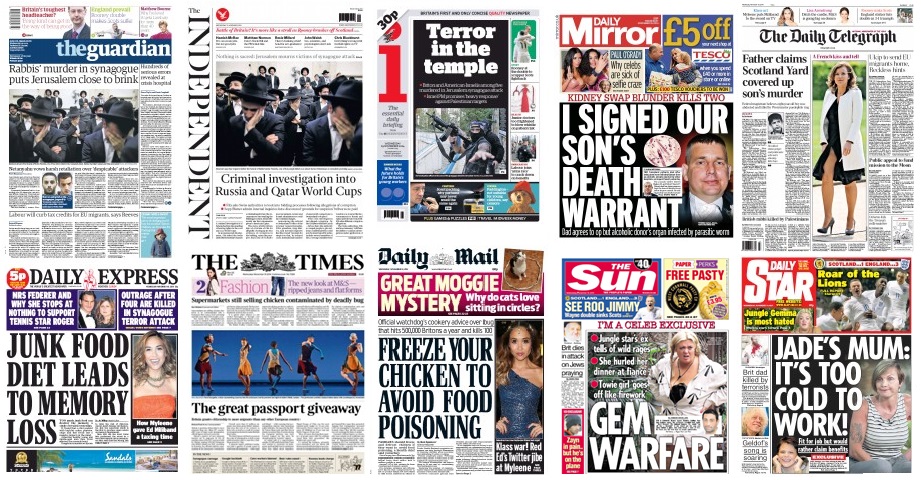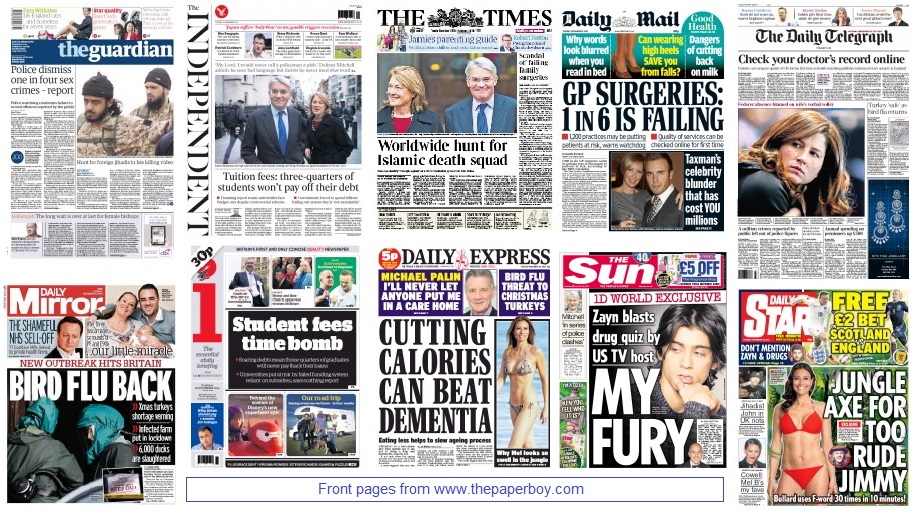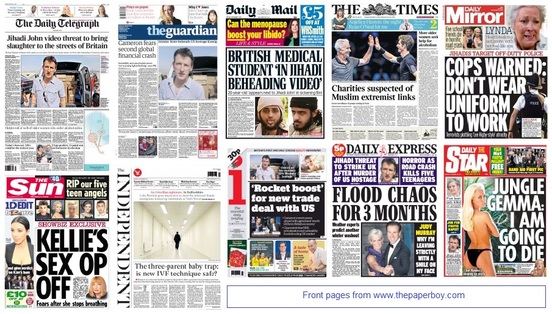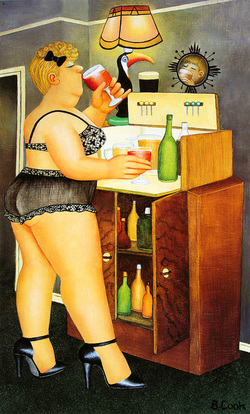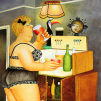This week's front pagesChristmas is coming and the papers are getting fat.
It's comforting to know that with marketing budgets squeezed, advertisers still turn to newspapers at the most competitive moments when getting the message across really counts. There are enough of them today to support 96 pages of the Times and Mail - and everyone benefits with the Sun coming in at 84, the Express 80, Independent 76, Mirror 72, Star 64, i 60, Guardian 54 and Telegraph 38. What is more, none has been coerced into surrendering key pages - Next and M&S have been commandeering a lot of 2-3 spreads of late - or had to accept really ugly across-the-page jobs. The worst is a garish Aldi bucket ad across spreads in the Telegraph and Times, but that's manageable. As it happens, both run pictures in muted colours across the gutter, which is fine in the Telegraph (American snow), but less successful in the Times which chops a stunning kingfisher photograph in two while leaving two less important images in the sequence intact. This is doubly unfortunate as the Guardian chooses to give that central picture the prime centre spread slot, leaving the Times looking forlorn. On the news front, the Ukip by-election provides plenty for the right-wingers to munch over. The resignation of Emily Thornberry as shadow attorney-general makes the splash for the Mail and Sun - the latter with a headline that is a mysterious and pointless play on a 40-year-old Double Diamond slogan. Everyone assumes that Mark Reckless will have retained his old seat for his new party - which he duly did, albeit with a majority reduced by 6,000. The big question is will he hold it in May? Most think it unlikely, but that's not going to stop the smiles down at the Nag's Head.
The Independent comes up with an interesting front page: Boris's American tax bill is intriguing (how many people knew the Mayor of London was a US citizen?) and an excellent splash. Here we have a look at invading foreigners who are having a far greater impact on our national purse than the Express's Romanian fruit pickers. And not before time. More and more of our privatised infrastructure is being taken over by companies - often state-owned - from overseas. As with all businesses, their primary concern is serving the interests of their shareholders rather than the customer. But beyond that, they are naturally going to be more eager to please customers on their home turf than those abroad, so prices are likely to be higher and investment lower. This warrants further investigation. Thursday 20 November, 2014
Wednesday 19 November, 2014
Serious stuff on the top row: the rabbi murders in Jerusalem were horrible, but that is not enough to propel them to the front pages of English newspapers. Nor is the fact that one of the victims was British. It is what comes next that makes this story super-significant. The world holds its thumbs.
The Mirror splashes on what is surely an unprecedented health shocker: the deaths of two men given the kidneys of an alcoholic tramp. As patients we assume that the health of transplant donors' organs is assessed before they are stitched into another person. This story suggests the checks are not up to scratch - and this may in turn be the result of a shortage of people carrying donor cards. The Telegraph returns to the Elm Guest House and the questionable goings-on there in the 1980s. In this case it tells the story of a man whose son disappeared on the day Charles and Diana were married. The father says he received a call shortly afterwards from someone who said the boy had been taken to the guest house and abused. He goes on to say that he took a recording of the conversation to the police, but that they took no notice. Now he hopes they will look into it further. There are some elements of this story that don't hang together quite right - but like the father, SubScribe hopes that the police will finally get on the case with regard to Elm. Having told us yesterday that cutting calories might beat dementia, the Express is today offering the other side of the same coin: junk food can lead to memory loss. Junk TV, on the other hand, can lead to redtop splashery. Gemma returns pole position in the Sun. The interweb tells us that she has now quit the jungle, but we doubt that this will be the last that we hear from her. The Mail and Times are worrying about chicken. Many chickens carrybacteria called campylobacter which can cause food poisoning. The Mail wrote a while back that 60% of chickens sold in this country carried the bacteria. The effects can, however, be reduced by freezing. That's great in countries where frozen poultry is popular. We, however, prefer to buy fresh chickens - so a public health official is suggesting that we freeze them when we get home and then thaw them before cooking. Great. Sounds like a guaranteed route to more food poisoning. The Times is also concerned about campylobacter. In this case the fact that a a quarter of the birds tested in spot checks by the British Poultry Council were found to be carrying high levels of the bacteria. Supermarkets were advised, but, the paper says, no action was taken to remove the birds from the shelves or to warn shoppers. The story tells us that campylobacter are behind 280,000 food poisoning cases every year, 100 of them fatal. So the concern seems reasonable - until you take into account the fact that, according to the poultry council, we eat 870 million chickens a year. Which works out at 0.0003 cases per chicken sold. Would it really be practical to remove a quarter of the chicken available in supermarkets to counter such a small risk? Better food hygiene and preparation at home must be the answer. Let the buyer beware. Lurking at the bottom of the Times's front page is a nib that leads to a far more intriguing story. More of that later. Tuesday 18 November, 2014
If anyone had any doubts about the fragile state of our public services, they need only wander to a newsagent/supermarket/petrol station where today's front pages are open for inspection.
In the face of all this, there are still papers that see antics in the jungle or Zayn's discomfort at being asked about drugs as more important. SubScribe understands the difference between popular and serious journalism, so perhaps that was a cheap shot. But if anyone reading this cares a jot about whether Michael Palin wants to go into a care home please email me to explain what I'm missing. In the meantime, the threat or otherwise to your Christmas turkey from the couple of ducks who had bird flu depends on your choice of newspaper. Chances are it won't kill you, but it might hurt your wallet. If this leaves you in need of cheering up, have a read of the Andrew Mitchell v Sun libel reports - and look out tomorrow for the decorator's evidence (taster on the home page here). The notion that a bloke who slapped a bit of paint round your living room 16 years ago might be called to the Royal Courts of Justice to opine on whether you'd use a word he'd never heard of is surreal. After that, the one really bright spot: the Synod has finally, finally voted in favour of women bishops. At last. Monday 17 November, 2014
The murder of the American aid worker Peter Kassig marks a watershed in the propaganda battle between Isis miitants in Iraq and the West. The fifth hostage killing and attendant video was greeted with the same - if not greater - revulsion as the previous four, but was not regarded as sufficiently unusual to guarantee the story a place on page one.
The Telegraph is alone in splashing on the murder, and it also runs three pages inside. The Mail has found a British angle, for the Guardian it is the picture story and for the Express, Star and i a puff. The Times, which leads on a different Muslim extremist story, relegates the killing to first nib and pushes full coverage right back to the opening foreign spread. The story is absent from the fronts of the Independent, Sun and Mirror - which also has its own extremists splash. Both sides of this media struggle are aware that after the murders of two American journalists and two British aid workers, the killing of a former US soldier would be unlikely to reach the same peak of public interest. The newspapers' approach was to downgrade coverage; the Isis strategy was to produce an entirely different video nasty. Instead of showing the killing of Kassig, it filmed the slaughter of 18 Syrians lined up in a row, and instead of ending with another orange-clad hostage under sentence of death, it finished with a shot of the British-accented murderer standing with a severed head - presumably that of Kassig - at his feet. Most papers analyse (or speculate on) what this change of tack might mean. It's a valid exercise in a battle of wits and it is bound to involve describing the film. But some fall into the propaganda trap of going into excessive detail. The Mail runs a six-column picture of the Syrians on their knees in front of their killers and the standard photograph of the masked killer whom nearly everyone persists in glamorising with the name "Jihadi John". Larisa Brown writes in an 1,100-word essay that the "chilling sound of a blade being drawn can be heard above the sound of Islamic music" and of "a stream of blood that turns the sand red". This is a story of mass murder, not a review of an adventure film, and the language is inappropriate. The Mail is far from alone in going too far. The Express and Telegraph both nose their stories on the killer's threats rather than the murders; the Times and Mirror both use big photographs of the cowed Syrians being led to their deaths. The Times also has a cutout of "John" holding a dagger aloft. The Star is worst of all pictorially, with three shots of "John", a still of Kassig in orange robes being threatened in the previous murder video and a photograph of the kneeling Syrians and their killers with every face clearly visible (at least everyone else pixelated the victims' faces). All of this is exactly what Isis wants. The Sun stands with the good guys in this coverage. It couldn't resist using a picture of "John", but the main photograph accompanying its page 13 lead is the one of Kassig in the Syrian sunshine that appears on the fronts of the Telegraph and Guardian. No gory details here. The Independent has a picture of "John" and another still of Isis fighters in pick-up trucks that may not have been taken from the latest film. The Guardian uses nothing from the video and illustrates its spread with a big picture of Kassig and a little cutout of his parents. Unlike any other paper, it manages to produce a page one story and a spread without using the words "Jihadi John", and offers the best analysis of the video from Martin Chulov, who writes: This 16-minute video, which chronicles the group’s rise over a decade and illustrates its bloodthirsty ways, was intended to make a statement – that battlefield woes don’t win wars. So let's stop doing their job for them.
|
|

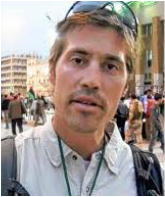



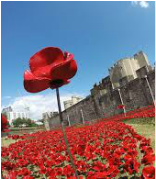
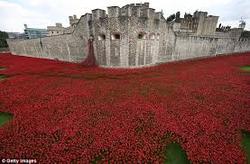
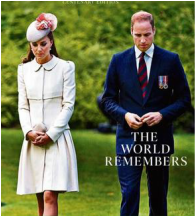
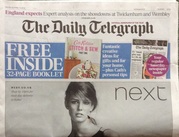
Hold the front page
The front page is a newspaper's shop window. You'd have thought that was so obvious that it wasn't worth saying. If it pulls down the blinds so that the customer can't get a glimpse of what's on offer, that customer will go elsewhere. No casual reader will buy the Telegraph today on the basis of a monochrome dress ad. - Editor's blog |
Please sign up for SubScribe updates
(no spam, no more than one every week or two)
|
|
|

